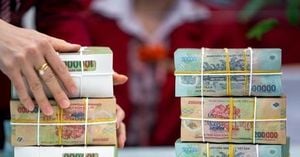The European Union is currently grappling with internal dissent as Hungary's Prime Minister Viktor Orban has expressed hesitation to support the continuation of sanctions against Russia. This situation arises against the backdrop of the existing sanctions expiring on January 31, 2025, which was the date set for the next review of restrictive measures aimed at Moscow.
According to Bloomberg, Orban has indicated he wants to wait until the inauguration of U.S. President Donald Trump before making any decisions on the matter, highlighting his concerns over the impact of previous sanctions on Hungary's economy. "It is time to throw sanctions out the window and create relations with the Russians without sanctions," Orban declared, pointing to the economic repercussions of the measures.
European ambassadors plan to convene soon for discussions on the future of sanctions against Russia, which require unanimous agreement from the EU's 27 member states. The Council of the European Union typically extends sanctions against Russia every six months, with the last renewal occurring on July 22, 2024.
The sanctions include extensive restrictions on trade, finance, technology, and dual-use goods, along with bans on the import or transfer of seaborne crude oil and certain oil products from Russia to the EU. The EU previously imposed its 15th sanctions package, which targeted 84 individuals and entities, including journalist Tina Kandelaki and singer Larisa Dolina, among others.
Looking forward, the EU is set to approve its 16th sanctions package against Russia on February 24, 2025, which is expected to address specific sectors of the Russian economy either inadequately covered or overlooked entirely by previous sanctions. This progressive measure indicates the EU's commitment to maintaining pressure on Russia amid the continuing conflict.
Meanwhile, the European Court of Justice recently denied the request from Andrei Melnychenko, former owner of SUEK and Eurochem, to be removed from the EU sanctions list. The court referenced Melnychenko's meeting with President Vladimir Putin on February 24, 2022, as indicative of his closeness to the government and his support for it. The court concluded Melnychenko still benefited from his companies, with the claim of his wife being the nominal owner dismissed.
Melnychenko, who was sanctioned on March 9, 2022, filed legal action against the restrictive measures, arguing they violated his rights to private and family life as well as property rights. The court's ruling emphasizes the EU’s stringent approach to sanctions, especially concerning individuals linked to the Russian government.
Observers note the potential repercussions the EU faces from Hungary's reluctance to cooperate on sanctions, as this could hinder collective action among member states. The stakes are high, as any failure to secure the necessary consensus could lead to delays or non-renewal of sanctions, thereby impacting the EU's geopolitical strategy.
Orban's position appears to have broader significance, reflecting the split within the EU over how to balance economic realities with political pressures stemming from the conflict with Russia. Amid these internal divisions, the EU remains focused on fortifying its stance against Moscow.
Calls for the removal of sanctions have emerged from various quarters, with some officials arguing they impede humanitarian efforts or reconstruction in affected regions. The international community is at a pivotal point where decisions taken will resonate far beyond the current geopolitical climate.
With the upcoming deadlines and the significant political shifts expected following the U.S. elections, the EU's approach to sanctions against Russia will be closely watched by allies and adversaries alike.



